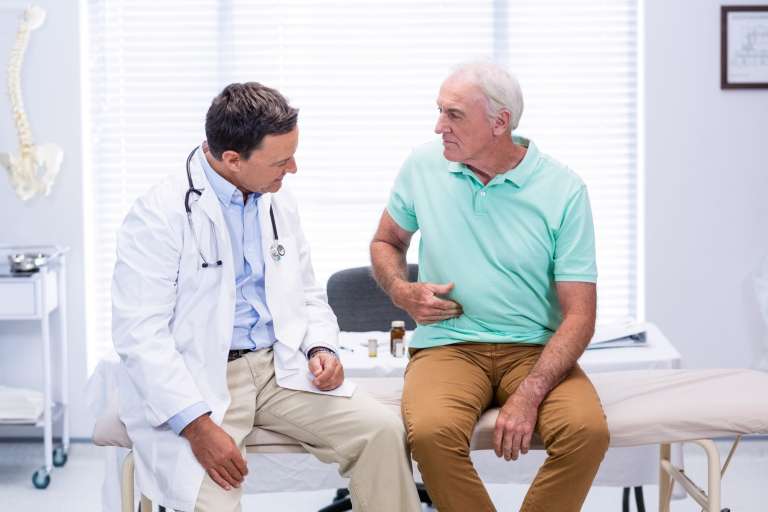Chronic inflammatory bowel diseases (IBD) include two diseases – ulcerative colitis and Crohn’s disease.
Ulcerative colitis and Crohn’s disease are inflammatory bowel diseases that, as the name suggests, are chronic, usually in the form of alternating bouts of inflammation and variously long periods in which the patient is free of problems.
Causes of disease
Unfortunately, we do not know the causes of chronic inflammatory bowel disease, but it is clear that some people are genetically predisposed to it. In them, there is an inadequate immune response of the mucous membrane to external factors. Problems can also be triggered by stress, unbalanced diet, smoking, insufficient amount of sleep, excessive hygiene and excessive use of antibiotics. More cases of the disease are detected in the developed countries of the world.
Profimedia
Problems can also be triggered by an unbalanced diet.
Who are IBD patients?
Chronic intestinal diseases are most common among young people, since they most often appear between the ages of 15 and 40. Crohn’s disease occurs earlier, in younger people, and ulcerative colitis affects slightly more men.
Some research shows that, in addition to environmental factors, genetic factors are very important in the development of IBD. Immediate relatives of a patient with Crohn’s disease have a thirteen-fold increased risk of developing the disease themselves.
Symptoms and warning signs
Abdominal pain and diarrhea are the most characteristic signs of the disease, bloody stools may also appear. Weight loss and failure to progress, including stunted growth and puberty, fever, fatigue, nausea and vomiting are common symptoms of IBD.
When to see a doctor?
If acute problems (abdominal pain and diarrhea) do not subside after 24 hours, you should visit your personal doctor. In case of severe pain or feeling worse, immediately. Early recognition of the disease and initiation of appropriate therapy are essential. The incidence and severity of complications can be favorably influenced by early initiation of therapy.
More severe complications are solved by surgery or removal of the affected part of the intestine. The doctor’s examination and the discussion of problems in the outpatient clinic guide further diagnostics, which is why this examination is very important. The disease is definitively confirmed with an endoscopic examination – colonoscopy – and a histological examination of mucosal samples.

Profimedia
Early recognition of the disease and initiation of appropriate therapy are essential.
Biological drugs give good results
The aim of treatment is to reduce problems and return the patient to a feeling of better or well-being. In the treatment of IBD, anti-inflammatory drugs are used: corticosteroids and drugs from the group of immunomodulators, which mostly satisfactorily calm the disease. Biologics are also available for patients who do not respond to standard treatment. In recent years, the way IBD is treated has been significantly changed by biological drugs, which represent significant progress in treatment.
In ulcerative colitis, inflammation is usually limited to the large intestine, but in Crohn’s disease, the inflammation can affect any part of the digestive tract, from the mouth to the rectum.
We have several types of biologics available. Biological drugs are complex protein molecules obtained by biotechnological procedures on living cell cultures. Through their action on various inflammatory mediators, they suppress the inflammatory response in the tissue, in this case the mucous membrane of the gastrointestinal tract. They can be administered intravenously in the form of infusions, subcutaneously by injecting into the subcutaneous tissue, and certain drugs (these small molecules that do not directly belong to biological drugs) can be taken in the form of tablets.
Source: svet24.si


